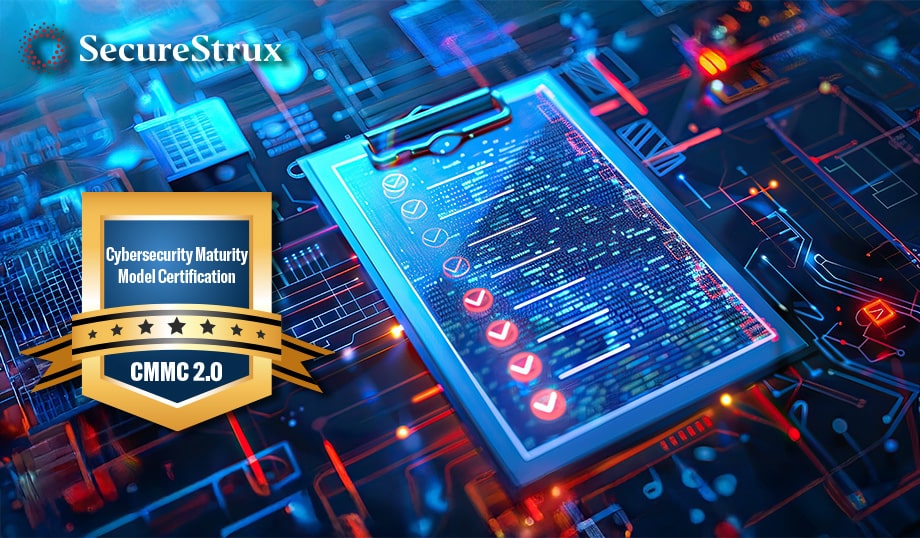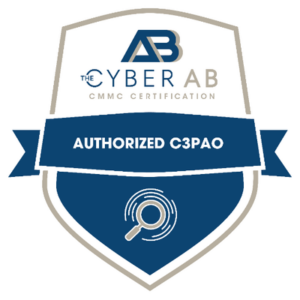
The defense industrial base (DIB) remains one of the most targeted sectors by cyber adversaries. As cyberattacks grow in sophistication, the Department of Defense/Department of War (DoD/DoW) is doubling down on the Cybersecurity Maturity Model Certification (CMMC) 2.0. For defense contractors, compliance is no longer optional; it’s a requirement. In 2025 and 2026, CMMC compliance will play a direct role in contract eligibility, making it essential for IT and cybersecurity professionals to understand what’s changing and how to prepare.
The Current State of CMMC 2.0
CMMC 2.0 simplifies the original model while aligning more closely with NIST 800-171 compliance. The framework defines three maturity levels:
- Level 1 (Foundational): Basic safeguarding of Federal Contract Information (FCI), verified through annual self-assessments.
- Level 2 (Advanced): Protection of Controlled Unclassified Information (CUI) with practices mapped to NIST SP 800-171. Many contractors will need third-party CMMC assessments by either a C3PAO or CMMC RPO. If you’re unsure about being Level 2, contact us today.
- Level 3 (Expert): Designed for the most sensitive defense programs, incorporating elements of NIST SP 800-172, with government-led assessments. Most companies are not level 3 ready yet.
By the end of 2025, DoD/DoW contractors should expect CMMC requirements in contracts far more frequently, making early compliance preparation critical if they want to continue to fulfill CUI contracts.
Why 2025 is a Turning Point for CMMC Compliance
Several developments make 2025 a pivotal year for defense contractors and their cybersecurity teams:
- DoD/DoW Rulemaking Advances – As rulemaking nears completion, CMMC 2.0 enforcement is on the horizon. Contractors may be barred from bidding if they cannot demonstrate compliance.
- Shift from Self-Attestation to Verification – While self-assessments remain in place for some contractors who handle less sensitive data (limited CUI or no CUI), the DoD/DoW is steadily moving toward requiring third-party CMMC assessments.
- Rising Cyber Threats – Nation-state actors continue to target defense contractors to exfiltrate sensitive intellectual property, reinforcing the importance of verifiable cybersecurity practices.
Common CMMC 2.0 Compliance Challenges
Defense contractors face several hurdles on the road to certification:
- Resource Constraints: Smaller contractors often lack the budget or staff for enterprise-level cybersecurity, which can open them up for lapses in security.
- Documentation Gaps: Policies alone are not enough—assessors require evidence, logs, and audit trails, no matter how large or small the company.
- Ongoing Compliance: CMMC 2.0 requirements demand continuous monitoring, not just point-in-time fixes. Continuous monitoring allows threat detection and response times to be faster while reducing risk and operational overhead. Keep your system security plan and policies updated to reflect any changes, too.
How Cybersecurity and IT Teams Can Prepare in 2025
To achieve and maintain compliance, defense contractors should prioritize the following actions:
- Perform a Readiness Assessment – Evaluate your current posture against NIST 800-171 controls to identify compliance gaps.
- Address High-Risk Gaps First – Focus on areas like multi-factor authentication, access controls, and incident response, which are commonly flagged in audits.
- Improve Governance and Documentation – Ensure that policies are actionable and supported by clear evidence such as system logs, tickets, and reports.
- Use Compliance Automation Tools – Implement solutions for vulnerability management, SIEM, and compliance tracking to simplify CMMC assessments, like Splunk or PowerStrux.
- Partner with Experts – Work with CMMC consultants and a C3PAO, like SecureStrux, to strengthen your compliance strategy and prepare for formal assessments.
Looking Ahead for 2025 and 2026 CMMC 2.0 Compliance
In Q4 2025 and beyond, CMMC 2.0 compliance is no longer a future requirement; it’s soon-to-be a contractual reality. DoD/DoW contractors that invest in compliance readiness today will not only safeguard sensitive defense information, but also gain a competitive advantage in the marketplace. For IT and cybersecurity professionals, the path forward is clear: align your technology, people, and processes with CMMC requirements now. Don’t risk being left behind.
As an Authorized C3PAO, SecureStrux enhances its CMMC services with an in-house team of certified CMMC assessors (CCA) for fair and objective assessments tailored to each organization’s unique circumstances. Having experienced the demanding certification process ourselves, we empathize with your journey. If you feel that you are ready to book an assessment, then please contact us to conduct an initial readiness review and get you onto the assessment schedule.
The latest in Cybersecurity
Enter your email to get the latest news, updates,
and content on cybersecurity.
"*" indicates required fields





